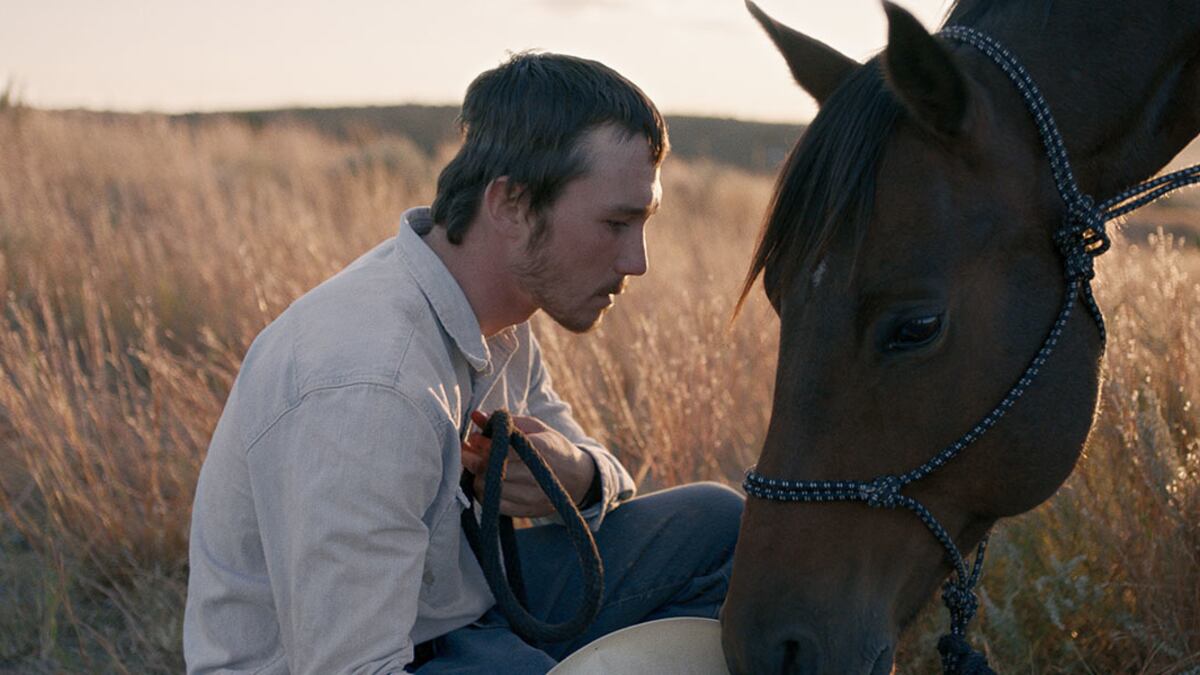Set in an American West that exists for most viewers only as metaphor, The Rider illustrates a place where "cowboy up" and "get back on the horse" retain their literal meaning.
The engrossing work of creative nonfiction centers on Lakota rodeoer Brady Jandreau and his decision whether to ride broncos again after suffering a grisly head injury. It's an achievement of ethical imagination from writer-director Chloé Zhao. In dramatizing Brady's real-life dilemma, the Chinese filmmaker defies tremendous storytelling constraints by producing art that repels cultural tourism.
Brady, his friends and his family all play themselves, which allows the film to thrive on a deeply felt ease that would be corrupted if the emotional stakes where amped up.
Instead, we sink into the Pine Ridge residents' tenderness and disquiet. With every barstool yarn and every "atta boy, Brady," the non-actors gradually reveal the acting they do every day.
But it's the communication between man and animal that stands up to any fictionalization. The relationship with the creature that's both won and cost Brady his dreams is an act of patience and devotion that can't be faked. Who needs to build characters when you can film a broken young cowboy training a wild horse?
Critic's rating: 4/4 stars.
The Rider is rated R and opens at Living Room Theaters on Friday, May 11.

